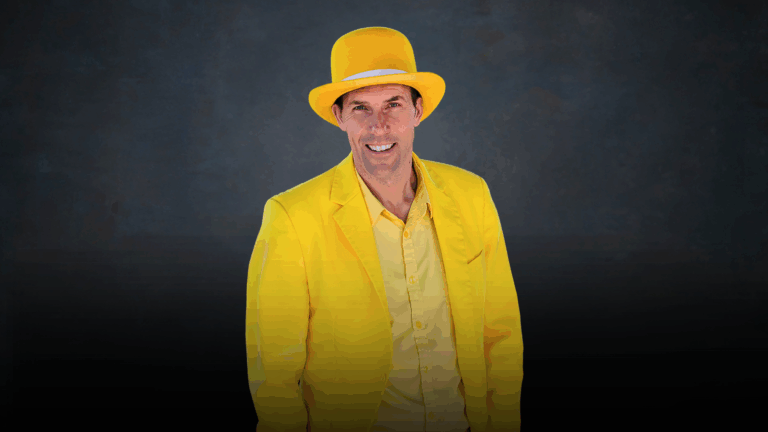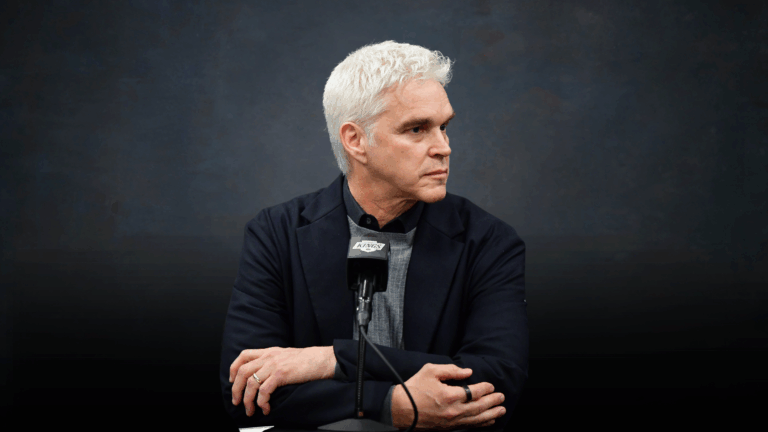This week’s conversation is with Jay Samit, a dynamic entrepreneur and intrepreneur who is widely recognized as one of the world’s leading experts on disruption and innovation.
The former Independent Vice Chairman of Deloitte Consulting, Jay helped grow pre-IPO companies such as LinkedIn, been a Nasdaq company CEO, held senior management roles at EMI, Sony and Universal Studios, pioneered breakthrough advancements in mobile, ecommerce, digital distribution, and spatial reality that are used by billions of consumers every day.
Jay raises hundreds of millions of dollars for startups, advises Fortune 500 firms, transforms entire industries, revamps government institutions, and for three decades continues to be at the forefront of global trends.
His list of partners and associates reads like a who’s who list of innovators, including: Bill Gates, President Bill Clinton, Pope John Paul II, Steven Spielberg, Steve Jobs, Reid Hoffman, David Geffen, Sir Richard Branson, and Paul Allen.
And if you’re interested in learning more after listening to this conversation, I definitely recommend checking out Jay’s book – Disrupt You! Master Personal Transformation, Seize Opportunity, and Thrive in the Era of Endless Innovation.
“My success is because I have failed more than anybody you will ever meet. I just try more fricking crazy things and keep going.”
In This Episode:
Why he wrote his first book, “Disrupt You!”
I saw a hole in the motivational, self-improvement books. There were those with great egos that said, “This is how I did it.” And, “If you got out of World War II when I did and you joined GE, you could be Jack Welch.” Irrelevant. Journalists from the outside, or academics that never sat in an empty room and built a billion-dollar company. But as you know, I’ve run multinational companies with hundreds of thousands of employees. I’ve sat in an empty room many times, and started companies that have gone on to become great things. And I’m not smarter than the average bear, I am the average bear. So I wrote the first book, Disrupt You!, to show people how to do this. I was teaching it at the largest engineering school in the US, at USC. And I noticed these brilliant students that had no clue how the world worked. And that book was a huge success.
How that led to his new book, “Future Proofing You”
I got this one email that said, “This is all great, but I could never do it.” And I have very thin skin, that ate at me. What was I missing? It was a millennial. And I had millennial sons, I know millennials, I don’t stereotype them. And so I said, “Why not try something that nobody ever did? I’ll put my reputation on the line. I’ll take an immigrant who’s homeless, grew up on welfare. Mentor him one day a week for a year. Give him no cash, not open up the contacts, not tell him what to do.” Have to start a business that has zero capital. But could I share what I call the 12 truths? And spoiler, if you’re reading Future Proofing You, he becomes a millionaire in 11 months. And you read the book, there’s nothing in here that was rocket science. There’s nothing that that was I hired Tiger Woods and said, “I’m going to teach you to golf.” He was a regular guy. And his example should be the inspiration to show anyone, wherever they are in their quest.
His motivation
I grew up working class. I had two sons when I was very young, and quite frankly, I wanted them to have a better life than I had. That’s all the motivation I needed. I wanted to be a good dad. I wanted to do with them and give to them. And giving to them, in my mindset, wasn’t material things. It’s being able to be present, being able to be there. Not working round the clock so you miss those most important years.
The goal was never money, it was freedom
It was never about material things. It was freedom from dealing with assholes, that’s what money gave you. Freedom to decide how you want to spend this gift called life.
There’s no secret elevator to the top
By my college years, obsessed with, how did successful people become successful? And so I was editor of my college paper, and so I got to pick the plum assignments when all these famous celebrities, Bob Hope and everybody would come to school. I knew they all were at the same point as I was at that stage, and then what happened? I wanted to know that secret elevator to the top. And from meeting, and talking, and asking over and over again, I realized there wasn’t. These were what I call stubborn people, you would call them determined. They just kept on going, because the only person that can stop you is you. And if you think you can, or you think you can’t, you’re right. And eventually they got lucky, right? The harder they worked, the luckier they got. And so whether consciously or unconsciously, I emulated that. My success is because I have failed more than anybody you will ever meet. I just try more fricking crazy things and keep going.
Making a deal with The Pope
And one day I’m doing tech support calls, and I’m killing time with a guy around the computers. And his name is Father Timothy. And I go, “Oh, I’m a father too. I have two sons.” He goes, “No, I’m a Jesuit.” And I go, “What’s that?” Okay. No catechism in my background. And he explains that he’s in IT at the Vatican. And I’m like, “The church has an IT department?” I don’t sit there and think, “An organization of a billion members probably has some infrastructure.” I’m like, “That’s kind of cool.” And I pitch them an idea that I’ve always had. That the Vatican’s collection is really, putting religion aside for a second, is the history of Western art, and the history of Western music, Western culture. Can we do the history of this institution as a CD-ROM, or whatever? And at that time, the church felt that they were losing kids to video games and computers. And to make a long story short, if you ask, it can happen.
How he handles fear
Fear is real. I hate every charlatan out there that says, “You can overcome fear, you can get past fear.” I have whole chapter on it in Future Proofing You. Your oldest part of the brain, the lizard brain is the fight-or-flight. You are hardwired for fear… So I tell people, “Go talk to the grandparents, or go to a senior center and ask people their biggest regret in life. And it’s not what they failed at, it’s what they failed to try. So when you have those other fears, let the existential one hang over you and say, “You just gave up one of your 80,000 days. How many more are you going give up? Because every day you waste on whatever it is you’re doing, you’re not working towards a future that you can enjoy.” And so that’s how I handle fear. I’m not fearless.
His metric for success
Psychologically, when you achieve more than the generation before you, you feel a sense of accomplishment. Because you’re comparing yourself to the environment from which you came. But I judge success by, “How did my children turn out? Did I do right by them?”
Nobody is above, nobody is below
I had, and still have an authoritarian father. His explanation for anything was, “Because I say so.” So that you should respect authority because you’re told to, I flipped that script at four years old, okay? I have zero respect for authority. Teacher, principal, boss, anything, unless you earn it. Okay? No one is better, right? And no one is beneath, right? So I’ll treat everybody that way until they teach me how I can or cannot trust them, work with them, whatever. And as I said, the only thing that money changed, is it allowed me not to have to deal with the kind of people that you shouldn’t have to deal with. That too many people have their lives battered by.
The key characteristics of a successful entrepreneur
The key characteristic of an entrepreneur is you’re a pied piper. You have to get investors to follow your dream and believe you to give you capital. You have to have people that will give up on their career to come and join your company, and do the same. You have to have customers willing to try. And they’re not doing it for anything other than they believe in the dream, too. And so it doesn’t take ego. I have yet to have an idea in my life. I have a half a idea, and I try to then surround myself with people that can make it better… You have to be able to be flexible. An entrepreneur is going to find real early on that you’re going to have to do a little bit of everything, and you’re going to suck at most of these things. So you’ll figure out how to hire people that are different. But you’re also going to have to give up the things that you enjoy doing, because those will be the easiest for you to manage, because you understand them. And what else does an entrepreneur need? You need to know how to live sparsely, because you don’t know how long it’s going to take.
Competing against yourself
I really hate competition because I know there’s always somebody better. Better looking, smarter, better connected, better anything. Which is why I advise people to try to do something new, something different. There’s tons of voids to fill. And if you’re the only one doing it, by definition, you’re the best in the world. So yeah, I compete against myself. I’m going for, “What can I pull off that I haven’t yet?”



